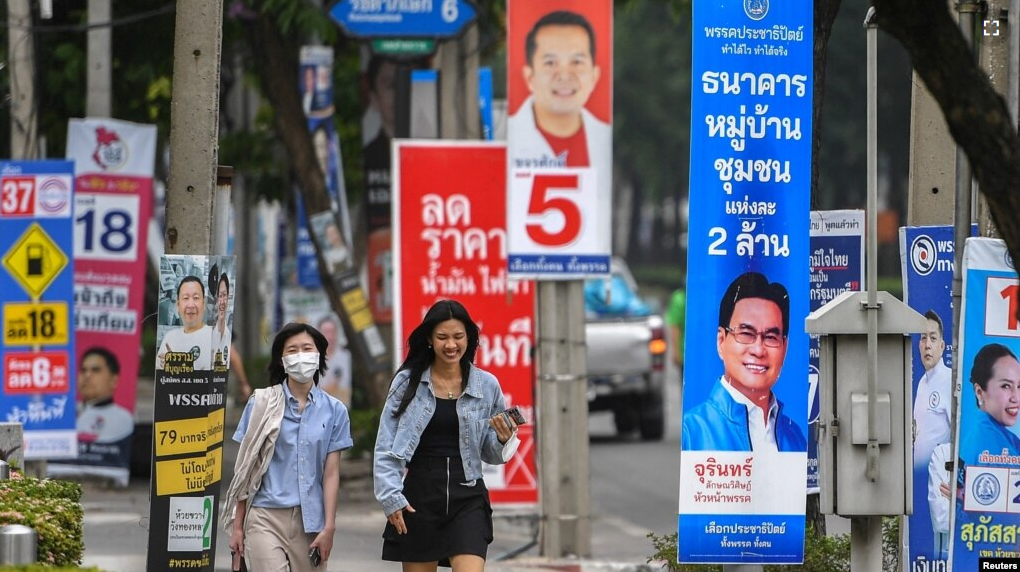Thailand will hold an election on May 14 after nearly 10 years under a military-led government.
Voters will choose from opposition parties, including Pheu Thai and Move Forward, or supporters of Prime Minister Prayuth Chan-ocha.
The 69-year-old Prayuth is a former army chief who led a coup in 2014 to take over the government. Later, court decisions permitted him to stay in power.
What to expect
About 52 million of Thailand’s population of more than 65 million can vote for members of a new 500-seat House of Representatives to serve four-year-terms.
Voters have two ballots, one for a local representative and the other for a political party on a national level. There are 400 seats for winning candidates and 100 seats for the parties.
Parties winning more than 25 seats can nominate a candidate for prime minister. Those candidates will be put to a vote by the legislature possibly in August. The legislature consists of two bodies, the 500-seat House, and a 250-seat Senate.
Thailand’s constitution was rewritten by the military in 2017. The Senate is made up of members appointed by a military group, and most have sided in votes with the ruling, military-backed parties.
To become prime minister, the winning candidate must have the votes of more than half of the combined legislature or 375 members.
Who could win?
Pheu Thai is a political party controlled by the wealthy Shinawatra family. It has a big lead in opinion polls as it did in earlier elections.
Thaksin Shinawatra and his sister Yingluck were both former prime ministers. A military coup removed Thaksin from office in 2006. Yingluck’s ouster came during another coup in 2014. They now live in exile. But Thaksin’s 36-year-old daughter, Paetongtarn, is running as one of the party’s candidates.
Move Forward is another opposition party with strong support. The party appeals to young voters. It seeks to change Thailand’s economy and political structure.
Kanphong Prayoonsak is a Move Forward candidate in Bangkok. He told VOA in early April, “It’s do or die…it’s the old ways and powers versus change.”
The parties are competing against two parties led by former army chiefs involved in military takeovers: the newly formed United Thai Nation Party, or UTNP, led by Prime Minister Prayuth, and the ruling Palang Pracharat party led by Prawit Wongsuwan.
Both parties get support from the urban middle classes. They are considered to represent the interests of Thailand’s wealthy upper class and the military. The two groups have long influenced Thai politics.
Another political party is Bhumjaithai. It has grown with its successful push to make Thailand Asia’s first country to legalize the sale of cannabis.
When will we know?
Voting ends at 1000 UTC on Sunday. The election commission says unofficial results should be released that same evening. It aims to certify 95 percent of the votes within 60 days.
The commission and an alliance of media organizations are expected to provide updates on the vote count in the hours after voting stations close.
It might be weeks, possibly months, before Thailand knows what its next government will look like, depending on the outcome of the election.
I’m Mario Ritter, Jr.
Hai Do adapted this report for VOA Learning English from VOA News and Reuters sources.
________________________________________________________________
Words in This Story
coup –n. a sudden attempt to take over the government of a country by a small group, often of military officers
poll –n. a public opinion study
versus –preposition against
